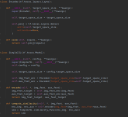Large-Scale Zero-Shot Image Classification from Rich and Diverse Textual Descriptions
Paper:
Sebastian Bujwid and Josephine Sullivan. 2021. Large-scale zero-shot image classification from rich and diverse textual descriptions. In Proceedings of the Third Workshop on Beyond Vision and LANguage: inTEgrating Real-world kNowledge (LANTERN), pages 38–52, Kyiv, Ukraine. Association for Computational Linguistics.
@inproceedings{bujwid-sullivan-2021-large,
title = "Large-Scale Zero-Shot Image Classification from Rich and Diverse Textual Descriptions",
author = "Bujwid, Sebastian and Sullivan, Josephine",
booktitle = "Proceedings of the Third Workshop on Beyond Vision and LANguage: inTEgrating Real-world kNowledge (LANTERN)",
month = apr,
year = "2021",
address = "Kyiv, Ukraine",
publisher = "Association for Computational Linguistics",
url = "https://www.aclweb.org/anthology/2021.lantern-1.4",
pages = "38--52",
abstract = "We study the impact of using rich and diverse textual descriptions of classes for zero-shot learning (ZSL) on ImageNet. We create a new dataset ImageNet-Wiki that matches each ImageNet class to its corresponding Wikipedia article. We show that merely employing these Wikipedia articles as class descriptions yields much higher ZSL performance than prior works. Even a simple model using this type of auxiliary data outperforms state-of-the-art models that rely on standard features of word embedding encodings of class names. These results highlight the usefulness and importance of textual descriptions for ZSL, as well as the relative importance of auxiliary data type compared to the algorithmic progress. Our experimental results also show that standard zero-shot learning approaches generalize poorly across categories of classes.",
}
Abstract
We study the impact of using rich and diverse textual descriptions of classes for zero-shot learning (ZSL) on ImageNet. We create a new dataset ImageNet-Wiki that matches each ImageNet class to its corresponding Wikipedia article. We show that merely employing these Wikipedia articles as class descriptions yields much higher ZSL performance than prior works. Even a simple model using this type of auxiliary data outperforms state-of-the-art models that rely on standard features of word embedding encodings of class names. These results highlight the usefulness and importance of textual descriptions for ZSL, as well as the relative importance of auxiliary data type compared to algorithmic progress. Our experimental results also show that standard zero-shot learning approaches generalize poorly across categories of classes.
Download: dataset & code
Dataset:
ImageNet-Wiki
(GitHub)
ImageNet-Wiki
(GitHub)
Code:
Zero-shot learning methods
Zero-shot learning methods

Code:
ImageNet-Wiki matching, processing, etc.
ImageNet-Wiki matching, processing, etc.

Happy to announce that our work will be presented at #LANTERN2021 (https://t.co/yYG9KAQi8x) @eaclmeeting #eacl2021
— Sebastian Bujwid (@SebastianBujwid) March 18, 2021
"Large-Scale Zero-Shot Image Classification from Rich and Diverse Textual Descriptions"
arXiv: https://t.co/OJawitrGeC@kth_rpl
Overview thread: pic.twitter.com/vVRWaIXuUO